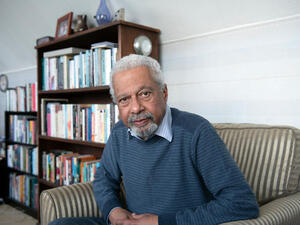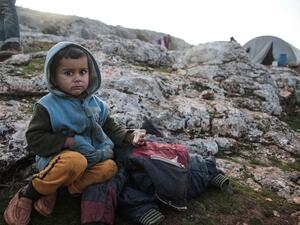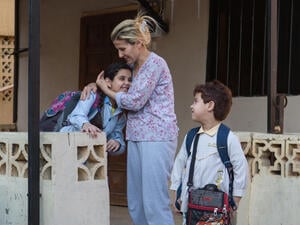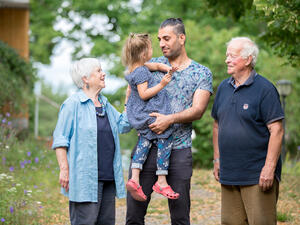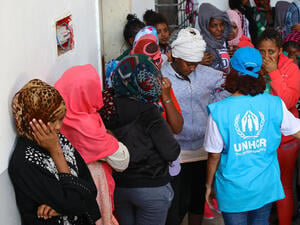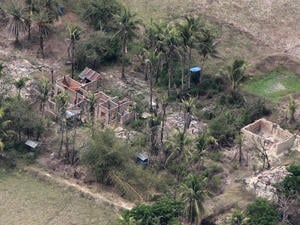Don't return Iraqis to unstable homeland, urges UNHCR
Don't return Iraqis to unstable homeland, urges UNHCR

UNHCR stresses that it is still premature to repatriate Iraqi refugees, like these in the United Kingdom.
GENEVA, March 16 (UNHCR) - Citing insecurity in Iraq a year after the start of the war, the UN refugee agency has appealed to governments to continue a ban against forced returns to the country, and to grant temporary protection to Iraqi asylum seekers, including rejected cases.
UNHCR had made similar recommendations last year - in March, June, July, August and November. The latest advisory was issued this month, a year after Coalition forces entered Iraq.
Pointing to the generalised climate of instability and insecurity in the country, UNHCR said, "Security incidents targeting both Coalition forces and, increasingly, Iraqis perceived to be supporting or collaborating with the Coalition Provisional Authority (including policemen, religious and community leaders, national UN and CPA staff, as well as the PUK and KDP administrations in northern Iraq) continue with alarming frequency."
The agency also noted that reports of kidnapping, especially of women and children, have increased in the last few months.
On the political front, it added, "There is potential for increased violence given the persistence of extremist elements and tensions among Iraq's various ethnic and religious groups." This includes northern Iraq, which continues to experience sectarian tensions and land ownership problems related to the former regime's practice of large-scale forced displacement.
Furthermore, UNHCR warned, "Life in Iraq continues to be characterised by a severe lack of housing, particularly in central and northern Iraq; the irregular provision of basic services, including electricity and access to telecommunications; the lack of an effective judicial system; the absence of properly functioning financial institutions; and a 60-70 percent unemployment rate."
The overall situation is such that Iraq's Minister of Displacement and Migration, Mohammad J. Khodair, has specifically requested UNHCR to urge host countries not to rush or force refugees to return to Iraq until such time when conditions for their organised and smooth return are more acceptable and do not constitute additional burdens on Iraq.
Although some voluntary repatriation has taken place, such as from Rafha camp in Saudi Arabia and Ashrafi camp in Iran, UNHCR stressed that it is not promoting voluntary returns at this point. However, it is facilitating - in close coordination with host governments and upon clearance by CPA - the return of individuals who want to go back to Iraq voluntarily in spite of current conditions.
The refugee agency also emphasised that it is unable to monitor returns or provide returnee assistance in Iraq because it does not have international staff there.
In addition to its call for continued protection for Iraqi asylum seekers, UNHCR has advised governments that have decided to resume the processing of asylum claims by Iraqis to take into consideration compelling reasons for non-return arising out of past persecution, as well as current international protection needs, including in particular persecution by non-state agents.
In the meantime, the refugee agency will continue to watch the situation closely and, when appropriate, adapt its advice according to changing circumstances inside Iraq.


